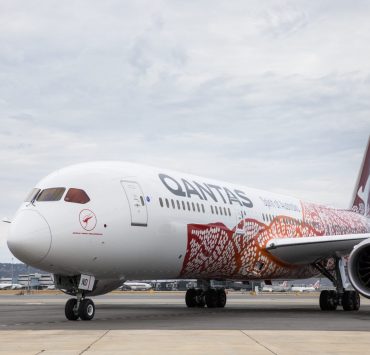
As Emirates was celebrating being named ‘Airline of the Year’ at the 2018 Air Transport Awards, the airline was yet again facing demands to rethink controversial employment policies that in the latest twist have been linked to a recent alleged suicide of an Emirates cabin crew.
On the 14th March, a female flight attendant apparently jumped from an open door of a Boeing 777 jet when it was parked at Entebbe International Airport in Uganda. If reports are to be believed, the cabin crew member was holding a bottle under her chin at the time she fell. She sadly died from her injuries a short time after arriving at hospital.
We have now been approached by several inside sources at Emirates who have raised alarming concerns about the way the victim was being treated in the weeks and months before her death. However, it’s important to note that the following allegations cannot be independently verified and should be treated just as rumours.
Our sources have told us the flight attendant had been working for the Dubai-based airline for a number of years – she had progressed to a supervisory onboard role as cabin crew and had a husband and children in Dubai.
But she had apparently been “struggling with her weight” and had been placed on the internal ‘Appearance Management Programme’ – yet this isn’t a programme to manage someone who is dangerously overweight or who can’t carry out critical safety-related job functions because of their weight.
No, instead, the ‘Appearance Management Programme’ is used by Emirates’ management to keep cabin crew in check with the narrow aesthetic ‘look’ that is approved by the airline. Flight attendants who fail to lose weight and maintain a slim figure can face disciplinary action, including loss of earnings and dismissal.
We’ve recently featured a separate article on this very subject, with yet another internal source telling us crew members can be grounded for three months at a time until they reach an approved weight. Our insider raised worrying concerns about flight attendants starving themselves in order to make the grade or be sent home.
Stories of cabin crew developing bulimia and anorexia are not uncommon.
When a crew member is placed on the programme they can be subjected to random weigh-in’s to find out how they’re progressing. Even new hires are made to stand on weighing scales before they can pass their probation – a policy that was rightly outlawed in the United States way back in 1993.
It’s believed that age-discrimination was a factor
What’s even more worrying in the Uganda incident, however, is that there are rumours Emirates’ restrictive age-dependent contract extension policy was weighing on her mind at the time of her death.
The policy isn’t normally a problem for the vast majority of new crew who are hired in their early twenties and then go onto work one or two contracts – typically three years at a time. But longer serving flight attendants may find their contracts extended for just 12-months at a time.
It’s widely believed that flight attendants who reach 50 years of age have their contracts terminated. There is not a general policy of finding ground-based roles for cabin crew who are subject to this policy.
Evidence of other unexplained deaths amongst the cabin crew community
While Emirates maintains its position as the largest international airline in the world with over 20,000 flight attendants, there is concerning evidence of an abnormally large number of unexplained cabin crew deaths within the company.
We’ve seen evidence of at least eight Emirates flight attendants who have died in the last few years. Some of the deaths remain unexplained and at least one other was attributed to suicide.
It includes the case Evelyn Clarke, a 28-year old member of cabin crew for Emirates who apparently jumped from the sixth floor of a Dubai towerblock in 2013. Her mother claims a powerful Emirati pushed her daughter to her death but the authorities conspired to cover up the murder.
There’s also the case of Michael Moran, a young British expat working for Emirates as cabin crew when he died in mysterious circumstances during a layover in Amsterdam. He died just a few short months after joining the airline.
What can be done to support flight attendants?
Critics are now calling for Emirates to do more to support its large cabin crew population of mostly expat workers. More can and should be done to pre-screen candidates for existing mental health conditions and to support serving cabin crew who need additional support.
Of course, this isn’t a problem that is unique to Emirates. Flight attendants working for airlines the world over remain in fear of seeking support for common conditions such as depression that can see their licences to fly immediately revoked.
The problem, unfortunately, is that the UAE’s expat workers can find themselves forced to pack up and return home without a job at the moment at which they most need support.
Mateusz Maszczynski honed his skills as an international flight attendant at the most prominent airline in the Middle East and has been flying throughout the COVID-19 pandemic for a well-known European airline. Matt is passionate about the aviation industry and has become an expert in passenger experience and human-centric stories. Always keeping an ear close to the ground, Matt's industry insights, analysis and news coverage is frequently relied upon by some of the biggest names in journalism.









